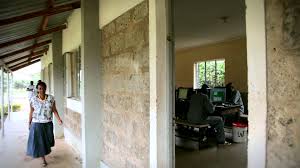Government Grants
Business Grants
Home Owner Programs
Federal Programs
About Us
Pathway Home 2
The purpose of this pilot program is to provide eligible, incarcerated individuals in state correctional facilities or local or county jails with workforce services prior to release and to continue services after release by transitioning the participants into reentry programs in the communities to which
they will return.
These grants are job-driven and build connections to local employers that will enable transitioning offenders to secure employment.
These projects ensure that transitioning offenders are prepared to meet the needs of their local labor markets with the skills valued by employers.
Applicants must ensure that occupational training provided has no federal, state, or local regulations that restrict individuals with criminal records from obtaining licenses or other necessary credentials in that career.
Therefore, applicants will need to research existing barriers for individuals with criminal records in relation to specific industries.
Employer connections will inform specific program curricula and ensure relevance to the needs of local businesses and jobs.
Teaching transitioning offenders foundational skills, such as job readiness, employability, and job search strategies, in addition to providing apprenticeships and occupational training leading to industry-recognized credentials, can provide access to employment and reduce the likelihood of reoffending.
These grants are job-driven and build connections to local employers that will enable transitioning offenders to secure employment.
These projects ensure that transitioning offenders are prepared to meet the needs of their local labor markets with the skills valued by employers.
Applicants must ensure that occupational training provided has no federal, state, or local regulations that restrict individuals with criminal records from obtaining licenses or other necessary credentials in that career.
Therefore, applicants will need to research existing barriers for individuals with criminal records in relation to specific industries.
Employer connections will inform specific program curricula and ensure relevance to the needs of local businesses and jobs.
Teaching transitioning offenders foundational skills, such as job readiness, employability, and job search strategies, in addition to providing apprenticeships and occupational training leading to industry-recognized credentials, can provide access to employment and reduce the likelihood of reoffending.
Agency: Department of Labor
Office: Employment and Training Administration
Estimated Funding: $57,500,000
Office: Employment and Training Administration
Estimated Funding: $57,500,000
Relevant Nonprofit Program Categories
Obtain Full Opportunity Text:
Full Announcement
Additional Information of Eligibility:
Non-profit organizations with IRS 501(c)(3) status, including women’s, minority, community, and faith-based organizations; public institutions of higher education, including Hispanic-serving, Historically Black, Tribally-controlled, and Alaska and Hawaii Native-serving higher education institutions; nonprofit post-secondary education institutions with or without 501(c)(3) status; state or local governments; any Indian or Native American entity eligible for grants under Section 166 of WIOA; and for-profit businesses and business-related nonprofit organizations.Applicants, based on Employer Identification Numbers, who received funding from the FY 2019 Pathway Home competition [FOA-ETA-20-02] are not eligible to participate in this competition, and their applications will be considered non-responsive.Among eligible applicants listed above, the applicant agency or organization must also have access to participants during their incarceration as documented through Letters of Commitment or Memoranda of Understanding between the applicant and each identified mandatory partner as described in Section IV.B.3(d)(i).
Full Opportunity Web Address:
https://www.justice.gov/ovw/open-solicitations
Contact:
Agency Email Description:
Head.Bryana.F@dol.gov
Agency Email:
Date Posted:
2021-01-19
Application Due Date:
Archive Date:
2021-04-15
Social Entrepreneurship
Spotlight
When it Comes to Social Enterprises, Failure is the Best Platform for Innovation

In the world of social enterprises, failure is a cringe-worthy moment nobody wants to talk about. But, social entrepreneurs can benefit from their failures.

